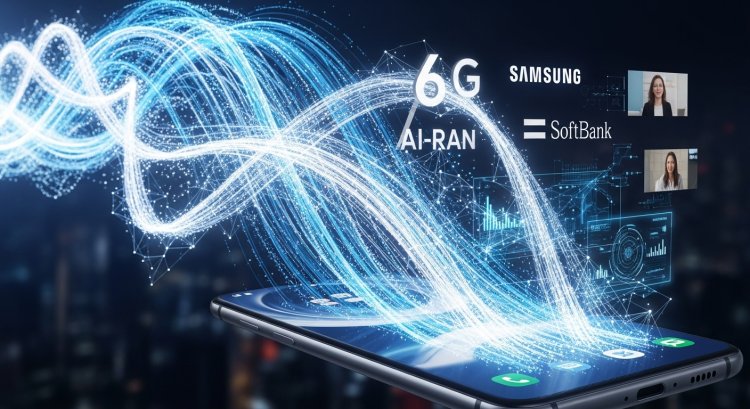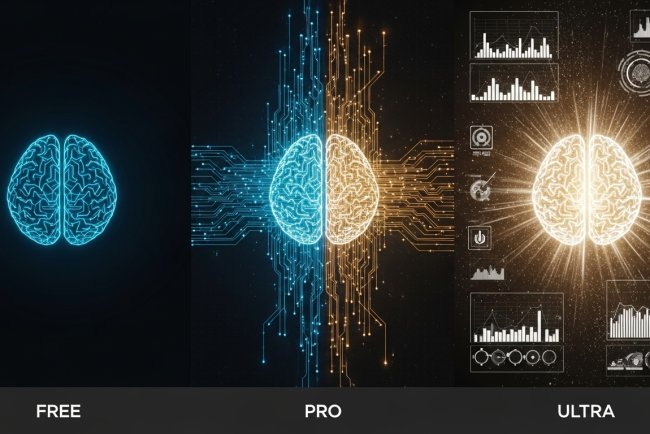Samsung and SoftBank Join Forces to Build AI-Powered 6G Network: The Future of Galaxy Phones, Android, and Mobile Data
Samsung and SoftBank have partnered to develop AI-RAN technology for next-generation 6G networks. Learn how this partnership will shape the future of Galaxy phones, Android devices, and the 6G cellular revolution

New Era of 6G Technology
The next generation of mobile communication is coming faster than ever. In October 2025, Samsung and SoftBank officially signed a Memorandum of Understanding (MoU) to collaborate on developing AI-RAN technologies for the future 6G network. This step will combine Samsung's network hardware and chip manufacturing strength with SoftBank's experience in large-scale AI systems.
As the world moves beyond 5G vs 6G comparisons, this partnership begins a new technological revolution that could redefine how we experience mobile data, Android performance, and Galaxy phones. Even tech visionaries like Elon Musk are exploring the potential of 6G, which promises speeds and intelligence far beyond anything we know today.
Samsung and SoftBank's Vision for 6G AI-RAN
This partnership aims to design and test new AI-based Radio Access Network (AI-RAN) systems for 6G cellular communication. The companies are conducting field trials using the 7GHz spectrum band, which is expected to be central to 6G standardisation.
Together, they will focus on four primary areas:
First, developing AI for RAN, where artificial intelligence will work at the physical layer of wireless networks to improve signal efficiency and reduce latency.
Second, integrating AI and RAN workloads on a shared infrastructure, managed through an advanced AI-RAN Orchestrator, allows smoother and more energy-efficient performance.
Third, using SoftBank's Large Telecom Model (LTM) to strengthen security and optimise networks with intelligent automation.
Finally, 6G technology will be tested in real-world environments to ensure it is ready for commercial use by the decade's end.
The Impact and Expected Results of 6G Technology
The collaboration between Samsung and SoftBank is expected to create faster, more reliable, and more secure next-generation networks. With AI-driven optimisation, 6G networks could reach speeds up to one terabit per second — nearly 100 times faster than 5G. This will allow Android and Galaxy 6G phones to instantly download large files, stream ultra-high-definition content, and run advanced real-time applications like holographic communication and self-driving car coordination.
Integrating AI with RAN will also make the networks more energy-efficient, reducing operational costs and improving sustainability. This means longer battery life, faster connections, and more innovative mobile data management for users. The partnership also opens doors for innovative new use cases — from AI-powered smart cities to connected homes and robotic automation.
How 6G Will Change the World
6G is not just about faster internet; it represents a complete shift in how communication networks function. Unlike 5G, which mainly focuses on speed and connectivity, 6G technology will use artificial intelligence to make networks self-learning, self-healing, and highly adaptive.
For instance, future Galaxy phones will connect to the internet and communicate intelligently with nearby devices, predicting user needs and adjusting performance automatically. The 6G chipsets developed by Samsung will support this transformation, combining processing power with deep AI capabilities. Meanwhile, SoftBank's AI foundation models will ensure that data transmission remains secure and efficient across massive global networks.
5G vs 6G: The Key Differences
While 5G is still being rolled out in many regions, the telecom industry is already looking beyond it. The difference between 5G and 6G is in speed and intelligence.
5G offers speeds up to 10 gigabits per second, while 6G could reach up to one terabit per second. The latency of 6G — or the delay between sending and receiving data — is expected to drop below 0.1 milliseconds, compared to 1 millisecond in 5G.
Moreover, 6G networks will be powered by AI-RAN, meaning intelligent algorithms will handle network decisions like signal optimisation, routing, and interference management. This makes 6G networks faster, innovative, safer, and energy-efficient.
So, while 5G connects devices, 6G will connect intelligence — transforming every smartphone, car, and home appliance into part of a unified, learning ecosystem.
6G Release Date and the Future of Galaxy Phones
Although the official 6G release date has not yet been announced, experts predict that early commercial 6G services will begin between 2028 and 2030. However, Samsung's proactive involvement in research and AI-RAN development could make it one of the first brands to launch 6G-ready Galaxy phones as early as 2027.
These upcoming devices are expected to use 6G chips for lightning-fast speeds, ultra-low latency, and built-in AI processing. For users, this means seamless real-time interactions, holographic communication, and highly personalised Android experiences powered by next-generation networks.
Conclusion: The Future of Connectivity Is 6G
The collaboration between Samsung and SoftBank marks a milestone in the evolution of telecommunications. By merging AI and RAN technologies, they build a faster network and create the foundation for a more intelligent and connected world.
From Galaxy 6G phones to self-learning networks, the future of technology 6G is not just about speed but smart connectivity that adapts to human needs. As we move toward the 2030s, 6G will transform everything from mobile data usage to industrial automation, bringing us closer to a world where devices think, learn, and connect like never before.
Frequently Asked Questions
1. What is 6G technology?
6G is the sixth generation of wireless communication, offering speeds up to 100 times faster than 5G with intelligent AI integration for optimised performance and security.
2. When will 6G be released?
Experts expect 6G to launch commercially between 2028 and 2030, with early trials already underway by Samsung and SoftBank.
3. How fast will 6G be?
6G could deliver speeds up to one terabit per second, enabling instant downloads, holographic calls, and seamless AI-driven services.
4. What will Samsung's 6G phones offer?
Samsung's upcoming Galaxy 6G phones will feature AI-powered chips, faster connectivity, improved mobile data handling, and more innovative energy use.
5. How is 6G different from 5G?
While 5G focuses on speed, 6G combines speed with intelligence. It uses AI-RAN technology to create self-optimising, secure, and energy-efficient networks.
What's Your Reaction?

















